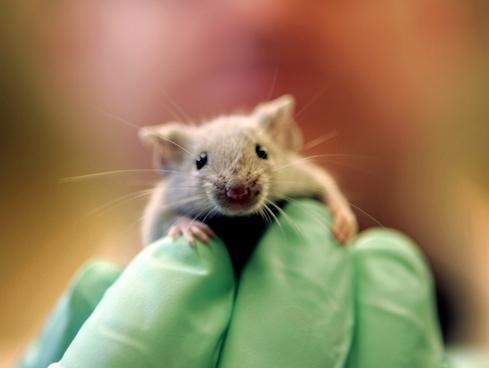Scientists have conducted some pretty wacky experiments in the pursuit of knowledge — and sometimes fun. For example, Louis Joylon West once gave an elephant 3,000 times the human dosage of LSD.
Or how about when Milton Rokeach kept confusing his kids’ names just to mess with them and made three guys who thought they were God hang out to see what would happen?
Recently, more scientific shenanigans went down when University of California, Los Angeles chemical and biomolecular engineering professor Yunfeng Lu led a team of researchers to get some mice really, really drunk.
The study, published Feb. 17 in Nature Nanotechnology, wasn’t conducted just to see if alcohol tore apart their furry families or lowered their already low mouse standards — those studies have already been conducted.
It was done to see if a cocktail of enzymes delivered in a nano-capsule could lower the mice’s blood alcohol levels and prevent liver damage.
The results?
The three enzymes worked together to greatly reduce blood alcohol levels and also lowered levels of the enzyme alanine transaminase, the biomarker for liver damage.
What does that mean for humans?
One day, we may have a quick method of sobering up that doesn’t involve accidentally seeing a relative naked or talking to the cops. It also means we can continue drinking without committing acts of hate against our bodies.
This is what modern science should be all about — damage control.
Alcohol’s been our best friend and worst enemy since our ancestors first gained the ability to efficiently metabolize it and stopped living in trees 10 million years ago. There were a plethora of reasons, but mostly because climbing trees is hard when you’re drunk, y’all.
Fifty-one percent of adults 18 and older today are regular drinkers, and there are nearly 16,000 liver disease deaths and more than 25,000 alcohol-induced deaths in the United States every year, not including accidents and homicides, according to the Centers for Disease Control and Prevention.
The National Highway Traffic Safety Administration also estimated an additional 10,228 people died in 2010 as a result of drunk driving accidents.
Since we’re clearly deficient when it comes to decision-making, why not let science step in and save us?
I understand the counter-arguments. Shouldn’t we practice moderation and make better choices instead of creating a new drug? What about our pill-reliant culture? And aren’t we wasting our resources and best minds solving trivial problems related to our recreational activities?
Believe me, the fact that there are at least 17 different prescription pills for erectile dysfunction and no cure for cancer or AIDS is a kick straight to the balls of my heart.
I also don’t believe pills are the answer for everything, but given that we can’t or won’t give up alcohol as a society, minimizing the impact of a harmful substance like alcohol is a tremendous accomplishment.
On Wednesday, our Student Government allocated funds for a new night bus route that will travel down Ben Hur Road and Brightside Drive. Although this will be great for drunken students trying to get home at the end of the night, it’s petty compared to what scientists can offer.
Imagine a future where an enzyme injection 30 minutes to an hour before your departure from a bar removes all need for a drunk bus or designated driver — less hassle, less accidents, less liver damage.
Sure, it’s easy to find fault with our culture’s obsession with substance abuse and pharmaceuticals, but this is different.
This is the deus ex machina of alcoholics, whereby an unlikely agent is introduced to solve a seemingly unsolvable problem.
I say bravo, Science. Sometimes you do some pretty crazy things, but this is what you were meant to do: improve our lives and prevent us from killing ourselves despite ourselves.
Here’s to hoping next year you’ll invent a reason for us not to drink.





